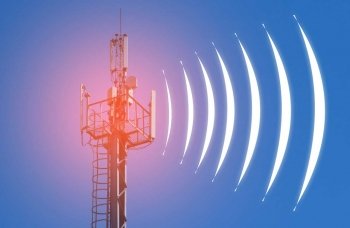Tower Sharing Policy Approved

Post, Telecommunication and Information Technology Minister Mustafa Jabbar approved the Tower Sharing License Policy and Interconnection Exchange (ICX) policy on the first day of its office (Thursday) on the office of the Secretariat. According to the policy, mobile operators will not be able to participate in the auction. The new organization will come in that case.
In 2016, the BTRC has created the policy to regulate the competition for making the tower tower. With the approval of the tower sharing policy, the construction of the tower tower of the mobile phone will be entrusted to the management of the highest four specialized tower companies. The licensing agency will provide licenses in the 'Beauty Contest' Assessment Method.
Prior to this, three companies have been given the license, but the number of organizations has been increased by changing it. According to the sources, BTRC has drafted the sharing of tower sharing guideline in 2016 with the provision to provide the responsibility of managing the telecommunication tower to the third party organization and send it to the post and telecommunication department for approval. Later, the ministry sent a letter to the BTRC to amend it again. In view of this, the policy was amended in the special meeting of the Commission held in June 2017. The number of licenses is determined by the number of licenses.
Besides, the license fee is 50 million and the annual license fee is 5 crore taka. The maximum limit of foreign investment in the tower company is 60 percent, although earlier the policy draft was 49 percent. In the meantime, the operators also took the initiative to form separate tower companies. Robi Axiata and Airtel Bangladesh have already got approval for the establishment of cooperative organizations from regulatory agencies. Grameenphone and Banglalink have applied for the formation of the company.
According to the draft policy, as well as expanding the network infrastructure of the licensing company of the tower management, the cellphone operators will have to reduce the use of the tower using the sharing between them. In the first year after receiving the license of the tower company, the mobile phone operators will have to shut down the use of towers on all divisions in the divisional cities of the country.
In the second year, in the second year, 30 percent of the upazilas in the third year, the 60 percent upazila in the fourth year and the fifth year in all the upazilas of the country will have to stop the service. According to this schedule, tower companies will also expand their network in the respective areas. In addition to the huge expenditure in network infrastructure management, many manpower is also involved.
In addition to the uncontrolled number of towers, there is adverse impact on the environment besides the land and electricity crisis. Due to these reasons operators have removed themselves from the responsibility of tower management in different countries of the world. In this case, infrastructure is provided by renting companies. As a result, multiple operators can get services from the same infrastructure sharing.
In fact, the Infrastructure Sharing Guideline was signed in 2008 to create an infrastructure sharing opportunity among the operators in the country, which was amended in 2011. Under this policy operators are using interconnected tower sharing. These guidelines are used to reduce the use of land and fuel as well as to reduce the cost of management of the institutions. However, there is no obligation on the operators to follow.
This post has received gratitude of 0.51 % from @appreciator thanks to: @ashik97.